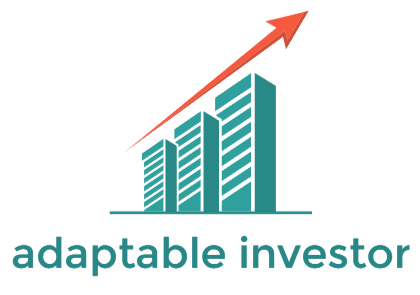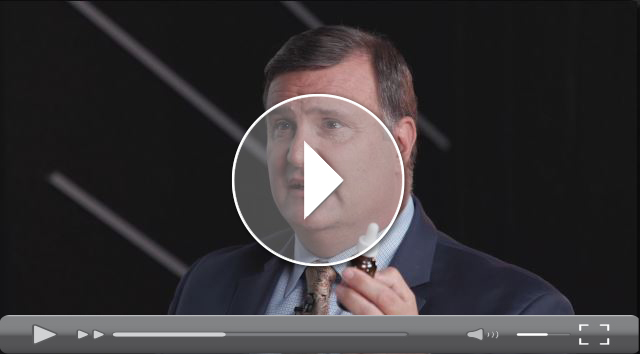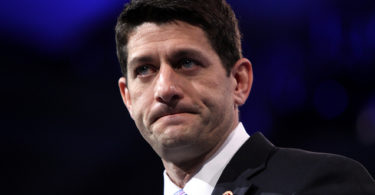Thanks to the US Farm Bill, which the House passed on Wednesday in a 369 to 47 vote, American farmers will be able to plant and harvest hemp, a strain of the same plant species from which marijuana originates. The bill passed the Senate Tuesday in an 87 to 13 vote, and President Donald Trump signed it into law Thursday evening.
Hemp legalization has been a longtime goal of Senate Majority Leader Mitch McConnell, a Republican from Kentucky, who believes it can help replace tobacco as a key crop for his state's farmers.
The move alters the language of a major drug law that had previously remained unchanged for half a century and loosely defined hemp alongside marijuana as a controlled substance. The new bill exempts hemp from that law and defines it as an agricultural product. That means farmers and researchers of hemp now get some of the same benefits as farmers and researchers of other crops, like the ability to apply for insurance and federal grants.
“The era of hemp prohibition is over,” Jonathan Miller, legal counsel for a lobbying coalition of over 60 hemp companies called the US Hemp Roundtable, told Business Insider.
That's a key change for scientists, many of whom say previous drug laws deterred them from studying hemp because it was regulated like marijuana.
The bill may also boost interest in a nascent but booming $1 billion industry based on a component of the cannabis plant called CBD, which has been touted for a variety of health and wellness claims. CBD is popping up in more and more products, from coffee and tea to supplements and beer.
But because CBD can be sourced from both marijuana and hemp plants, its legal status, set by the Drug Enforcement Administration, remains somewhat hazy. CBD from marijuana, just like marijuana as a whole, remains illegal. But now that hemp is legal, CBD from hemp may be legal, too.
“The devil is in the details, and we don't know yet how the DEA will act to implement the law,” Daniele Piomelli, the director of the University of California at Irvine Center for the Study of Cannabis and a professor of neuroscience and pharmacology, told Business Insider.
The DEA, which controls the scheduling of substances, has not said how it will respond to the new bill. As it stands, so long as a CBD product is “intended for human consumption,” it remains a Schedule 1 drug, DEA spokesperson Katherine Pfaff told Business Insider on Tuesday. She said she couldn't comment on how the bill might affect the DEA's approach.
The difference between hemp and marijuana comes down to one word: strain
Marijuana and hemp come from the same plant species, called cannabis sativa. Both contain THC and CBD. But each plant is its own unique strain of cannabis.
Until recently, hemp was bred almost entirely for industrial uses like manufacturing. As a result, hemp plants today have very low amounts of THC, the psychoactive chemical responsible for marijuana's high. Instead, hemp plants are often higher in CBD, or cannabidiol, which is also found in marijuana. CBD is now thought to be responsible for several of cannabis' therapeutic effects.
For example, marijuana-derived CBD is the active ingredient in Epidiolex, a syrup that is the first cannabis-based drug to gain US government approval for medical use. The government approved the drug over the summer. The drug treats two rare forms of childhood epilepsy.
One thing that is clear from the new bill is that commerce involving hemp is now in the clear. Federally insured banks, for example, have the green light for the first time to work with industrial hemp producers. Full story at Business Insider
4,067% Growth Expected
As medical marijuana begins legalizing in all 50 states, an expected 4,067% industry boom will transform the average American’s savings into early retirement nest eggs.
During his 2016 campaign President Trump commented about medical marijuana: “I’m in favor of it 100%.”
Former Speaker of the House John Boehner, who once stated he was “unalterably opposed” to legalization, now admits: “My thinking on cannabis has evolved.”
Today, he sits on the advisory board of a major marijuana company.
And United States Attorney General Jeff Sessions, once completely against legislation favoring marijuana, now says: “There may well be some benefits from medical marijuana.”
It appears it’s not a matter of if medical marijuana will become legal in all 50 states, but when.
It’s not surprising when you consider a recent poll shows 93% of Americans are now in favor of legalization.
And early investors could see their starting stakes turn into retirement fortunes, as the industry is expected to surge 4,067%.
Folks have already made as much as 1,389%, 500% and ten times their money from marijuana.
And if those gains were simply triggered by state laws, imagine the profits when it becomes legal for the entire country.
Using a strategy developed over 20 years in the commodities sector – resource investing expert – Matt Badiali has uncovered the best way to profit before Washington grants full legalization. It’s the perfect way to ride the coming 4,067% market surge.







